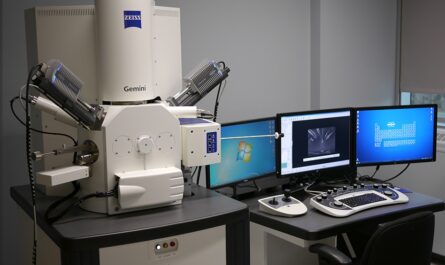![]()
Introduction
As we progress into an increasingly digital and online world, advancements in technology are making their way into fitness and wellness. Fitness trackers, in particular, have emerged as a popular accessory that allows users to monitor various health metrics in a simple, non-invasive way. These devices are becoming ubiquitous as more people recognize their benefits for tracking activities, workouts, sleep patterns and more.
What Are Fitness Trackers?
Fitness trackers, also known as activity trackers or health trackers, are wearable electronic devices that monitor and record various metrics related to a person’s physical activities, exercise and sleep. They are typically worn as wristbands or clipped onto clothing. Basic trackers count steps, measure distances covered, estimate calorie burn and track sleep patterns. More advanced versions also monitor heart rate, blood oxygen levels, hydration and even stress levels.
Functionality of Fitness Trackers
Fitness trackers come equipped with a variety of sensors that allow them to perform different functions:
– Pedometer: Counts the number of steps taken, distance covered and estimates calories burned based on a user’s profile data. This basic functionality helps users stay active.
– Heart Rate Monitor: Optical sensors check the heart rate throughout the day and during workouts. This provides more accurate calorie and exertion measurements.
– Sleep Tracking: Motion sensors and heart rate data allow trackers to monitor sleep cycles, duration and quality of sleep. This helps users identify issues.
– GPS: Higher-end trackers have built-in or connected GPS to map routes during outdoor activities like running, cycling or hiking.
-Notifications: Trackers can display notifications from smartphones for calls, messages and other alerts to minimize phone use.
– Apps & Profiles: Companion mobile apps provide dashboards to view metrics, set goals and customize profiles. Data can also be shared online.
Popular Fitness Tracker Brands
A few prominent names have emerged as leaders in the fitness tracker industry by consistently delivering high-quality, feature-rich products:
– Fitbit: Considered the gold standard, Fitbit offers various styles to suit different budgets and needs. Popular models are Charge, Inspire and Versa.
– Garmin: Known for their GPS watches, Garmin makes reliable trackers for outdoor sports as well. The Forerunner and Fenix series are top sellers.
– Apple: The Apple Watch has revolutionized the segment with its full-featured smartwatch design. Various Series with health/fitness tracking are available.
– Samsung: The Gear and Galaxy Fit lines provide affordable Samsung-branded options with tracking and smartwatch capabilities.
– Xiaomi: As one of the largest Chinese brands, their Mi Band series offers incredible value at low prices alongside basic tracking.
– Polar: A leader in sports tech, Polar caters to active lifestyles with in-depth training tools alongside heart rate monitoring.
Benefits of Using Fitness Trackers
For both casual users and serious athletes, wearing a tracker yields several valuable benefits:
– Goal Setting – Trackers let users set customized daily/weekly activity, exercise and sleep goals for motivation.
– Progressive Tracking – Data collected over time shows improvements or issues, encouraging continuous better habits.
– Calorie Tracking – Calorie burn stats encourage the right intake based on activities performed throughout the day.
– Activity Monitor – Simple nudges like standing alerts ensure users meet basic daily activity thresholds.
– Workout Training – Advanced versions provide tools for interval training, routes, pace analysis for different sports.
– Sleep Monitoring – Insights into sleep patterns help users address issues affecting quality of life and health.
– Non-Invasive Monitoring – Medical-grade tracking of metrics like ECG, oxygen, blood pressure in the future will replace inconvenient tests.
So in summary, fitness trackers have contributed greatly to the preventive health movement by empowering individuals with round-the-clock insights into quantifiable wellness metrics.
Emerging Technologies
As the industry matures, newer form factors and tracking capabilities are emerging:
– ECG & Heart Monitoring – Trackers from Apple and Fitbit can detect irregular heart rhythms by monitoring electrical heart activity.
– Blood Oxygen Saturation – Continuous SpO2 tracking patented by companies may soon detect respiratory issues at early stages.
– Hydration Monitoring – Trackers will soon be able to detect hydration levels through skin impedance or other non-invasive means.
– Sleep Apnea Detection – Advanced tracking of respiratory patterns and heart rate variability may reveal potential sleep apnea issues.
– Stress Monitoring – Technology like Garmin’s body battery and other tracking methods give insights into managing stress.
– AI-Powered Analysis – Cloud-based AI can deliver deeper coaching, workout optimization and medical insights from the massive fitness data being collected.
– Design Shrinkage – Watches and jewelry-styled health trackers are minimizing device sizes while expanding functionalities.
The future promises even more medical-grade capabilities within consumer health trackers to deliver ongoing preventive care through around-the-clock snapshot into personal metrics and timely alerts.
Privacy and Data Usage
While fitness trackers unlock convenient tools for wellness, users must be aware of potential privacy implications:
– Data Sharing – Health data can potentially be mined, analyzed or shared by third-parties without consent if users do not configure privacy settings carefully.
– Device Security – Connection to phones and accounts mean fitness devices need regular security updates to mitigate hacking risks.
– Companion Apps – Mobile apps from manufacturers also handle sensitive data. Users must understand what data is collected and how it is utilized.
– Identifiable Data – When shared publicly, tracked locations and activities can potentially be associated with individuals.
– Children’s Privacy – Parental devices collecting kids’ activities and biometrics need special consideration regarding consent and data usage.
Overall, as long as users take active role in managing privacy and understand what data is collected, fitness trackers are a powerful wellness tool when used judiciously. Manufacturers also aim for stricter guidelines and end-to-end encryption to address cybersecurity and data privacy concerns over time.
Conclusion
To conclude, fitness trackers are transforming preventive healthcare with their availability and affordability as ubiquitous everyday devices. As technologies progress, this category will continue converging various medical functionalities within consumer-focused form factors. With growing usage, immense fitness data.



